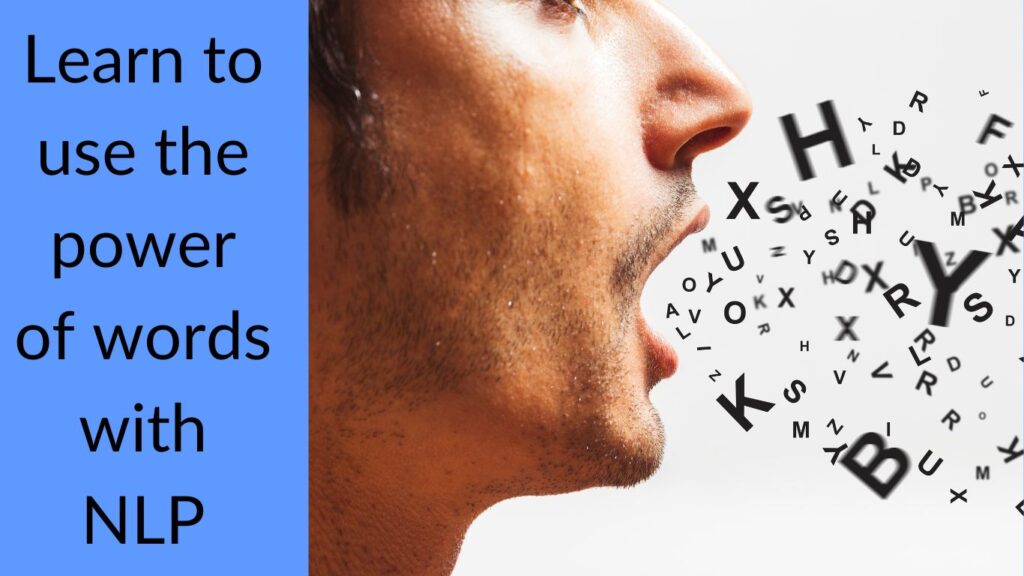We are constantly surrounded by language. Language is our world, as soon as we ‘label’ something in our head, it becomes real to us. We use words to express our thoughts, convey emotions, and connect with others.
There is a subtle and profound tool within language that often goes unnoticed—metaphors. Far from being merely decorative, metaphors shape our perceptions, influence our thoughts, and even direct our behaviour. Within the sphere of Neuro Linguistic Programming (NLP), metaphors hold transformative power, offering us new perspectives on challenges faced to make positive change.

The Essence of Metaphor
“Once upon a time…” How do you respond when you hear that phrase? A metaphor is a story with an underlying meaning. The major purpose of a metaphor is to pace and lead a person’s behaviour or influence their thinking through the telling of a story. We can use metaphors in many contexts. For example, whilst working with change communicating complex ideas to aid understanding or communicating news which might not be desirable. At work or home to modify behaviour with both individuals and teams. In leadership and management for those who wish to avoid an authoritarian approach. In business, influencing and persuading and in coaching for clients to find their own realisation of a solution.
Metaphors in NLP
In NLP, metaphors are regarded as powerful tools for change. As our mind uses and responds strongly to symbols and metaphors, it is important that NLP practitioners recognise metaphors are central to how we structure our experiences and make sense of the world. By working with metaphors, we can access deeper layers of the mind, unlocking new ways of thinking and being.
One of the key insights of NLP is the impact that metaphors can have. Do you know someone who describes life as a “battle”? This metaphor frames their experiences in terms of conflict, struggle, and adversity. While this may be a valid perspective, it can also lead to a mindset where the individual constantly feels under siege, always on the defensive. In contrast, if the same person were to view life as a “journey,” the emphasis shifts to exploration, growth, and discovery. The challenges they encounter are no longer adversarial and conflict related instead they are obstacles to be overcome or navigated on the path to personal development.

The Transformative Power Of Metaphor
Metaphors have the ability to reshape our reality. By ensuring metaphors are relevant to each of us, we can change the way we perceive and respond. This is a powerful tool for personal development allowing us to reframe limiting beliefs and open ourselves up to new possibilities.
For instance, consider the metaphor of “carrying baggage.” When we think of our past experiences as heavy luggage we must drag around, it creates a sense of burden and fatigue. If we were to reframe this metaphor and instead think of our past as a “toolkit of learning” that we carry with us, the narrative shifts. Now, our past experiences are not weighty burdens, rather valuable resources that we can draw upon when needed. This simple shift in metaphor can lead to profound changes in how we relate to our past and how we approach the future.
NLP practitioners often use metaphorical stories to enable change. These stories, carefully crafted, allow individuals to view their problems from a new perspective. As the story unfolds, the client may recognise patterns or insights that were previously hidden from their conscious mind. This process of realisation can lead to a breakthrough, where the client suddenly sees a way forward that they had not considered before.
Metaphors in Coaching and Therapy
In coaching and therapy Coach Practitioners are trained to utilise everything that a client says (as well as what happens during coaching). Metaphors are invaluable tools that Coaches should be comfortable and confident in using as clients may also use them, unaware. For example, a client may use a metaphor of “navigating a storm” to describe a powerful emotional experience, it is really important that the coach can work within the same or a similar metaphor to enable positive change and continue building rapport.
Metaphors help us find new ways to navigate the “how.” They are far more than words; they are powerful tools that shape our thoughts, emotions, and actions. By becoming aware of the use of metaphors we can unlock new perspectives and possibilities to empower us. Whether in everyday conversation, coaching, or therapy, the power of metaphor is key to enabling positive change within. It invites us to see the world in a new light, reframe our experiences, and discover paths we might never knew.
Next Steps
Metaphors are a strong example of the part that language plays in enabling change. They are one of 13 key skills delegates learn during our Accredited NLP Coach Practitioner Course, suitable for coaches, practitioners and those who wish to add to their skill set and take their personal and professional development to another level. Check out our course details here and for a no obligation chat on your self-development get in touch.

